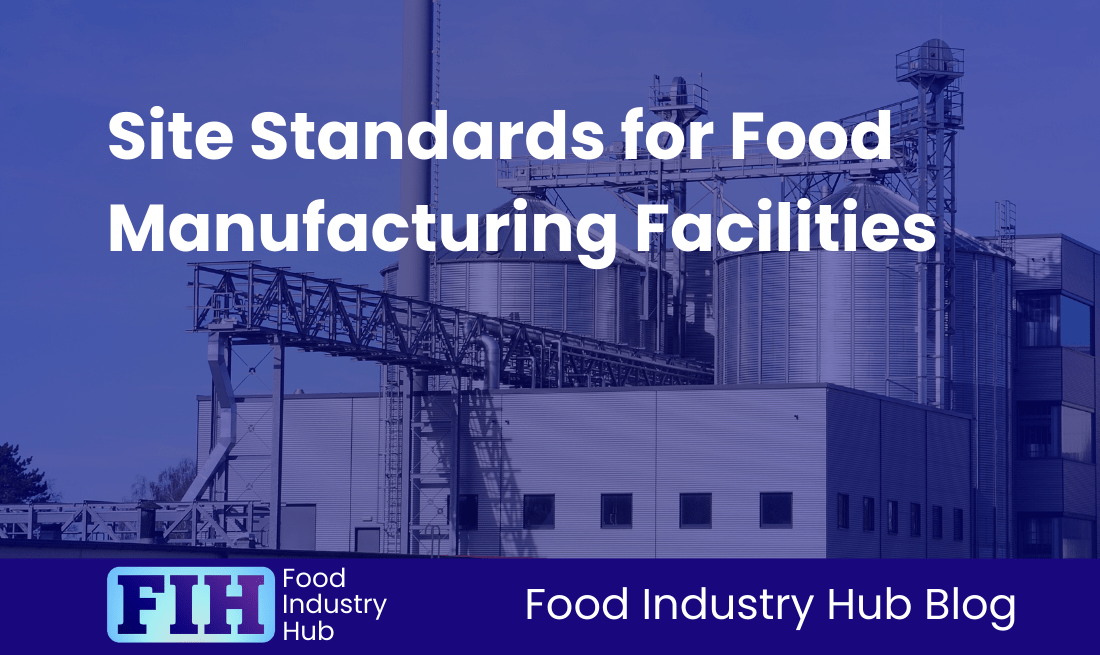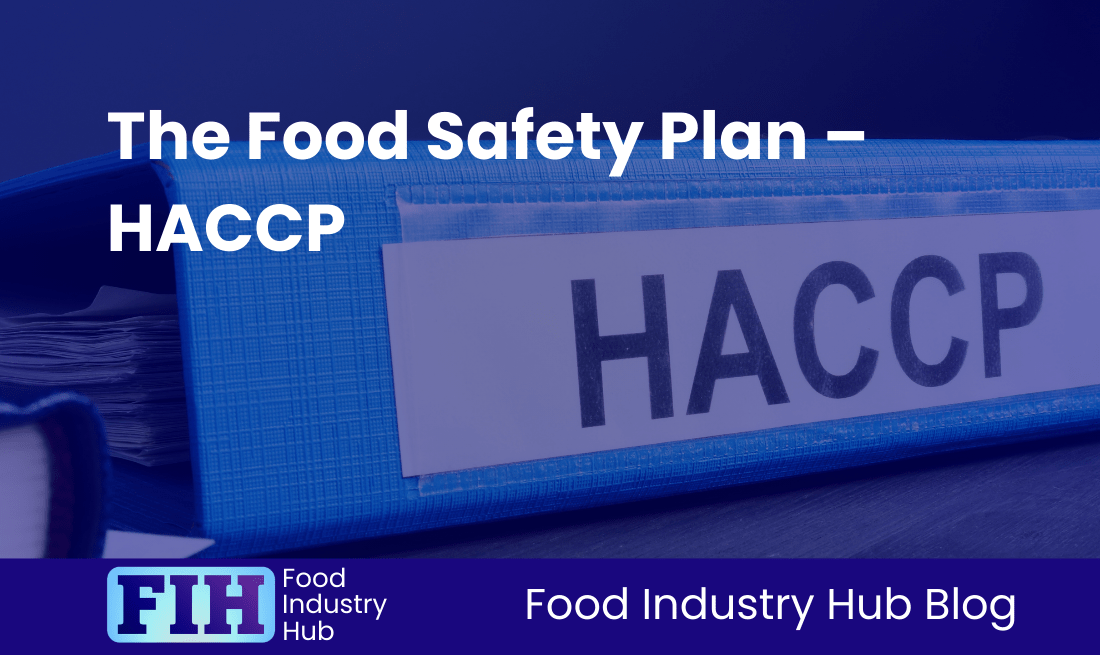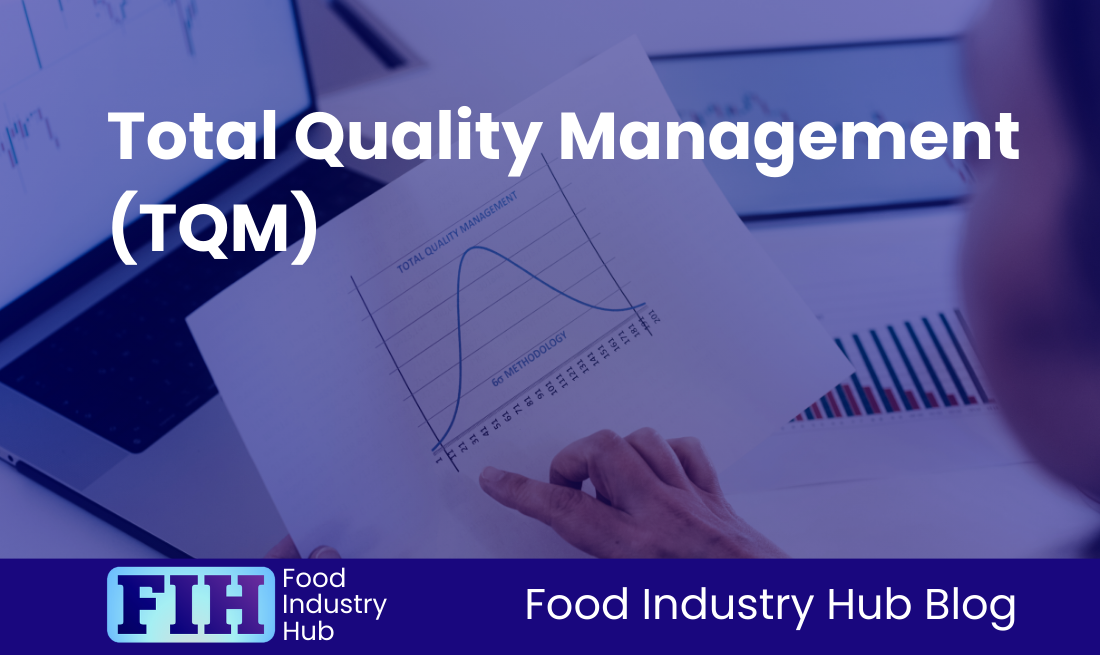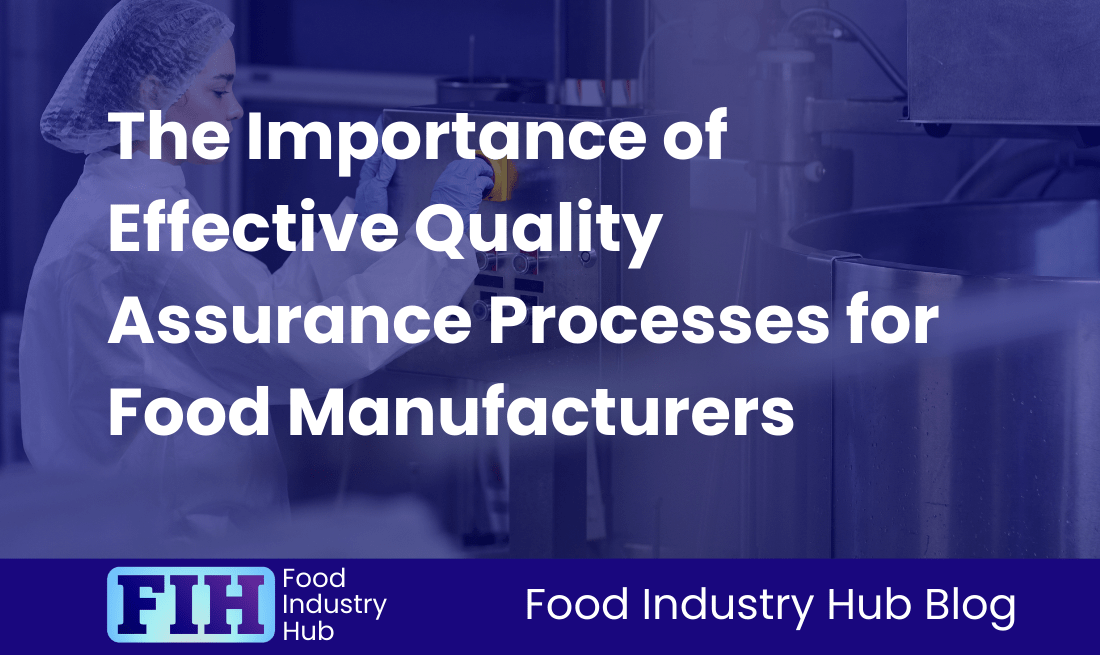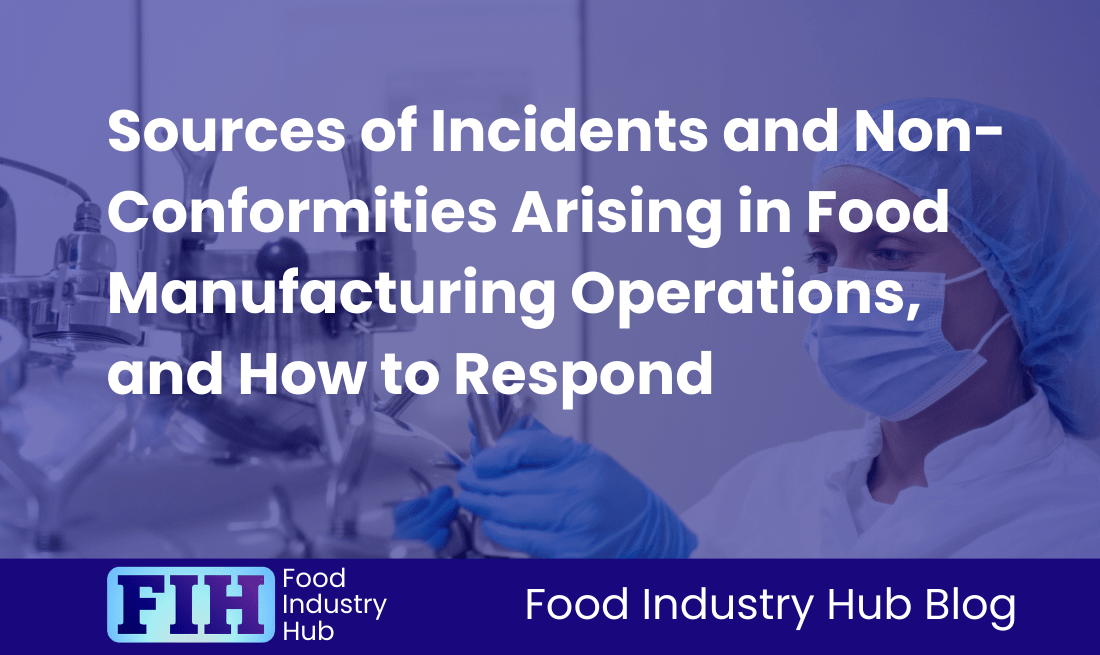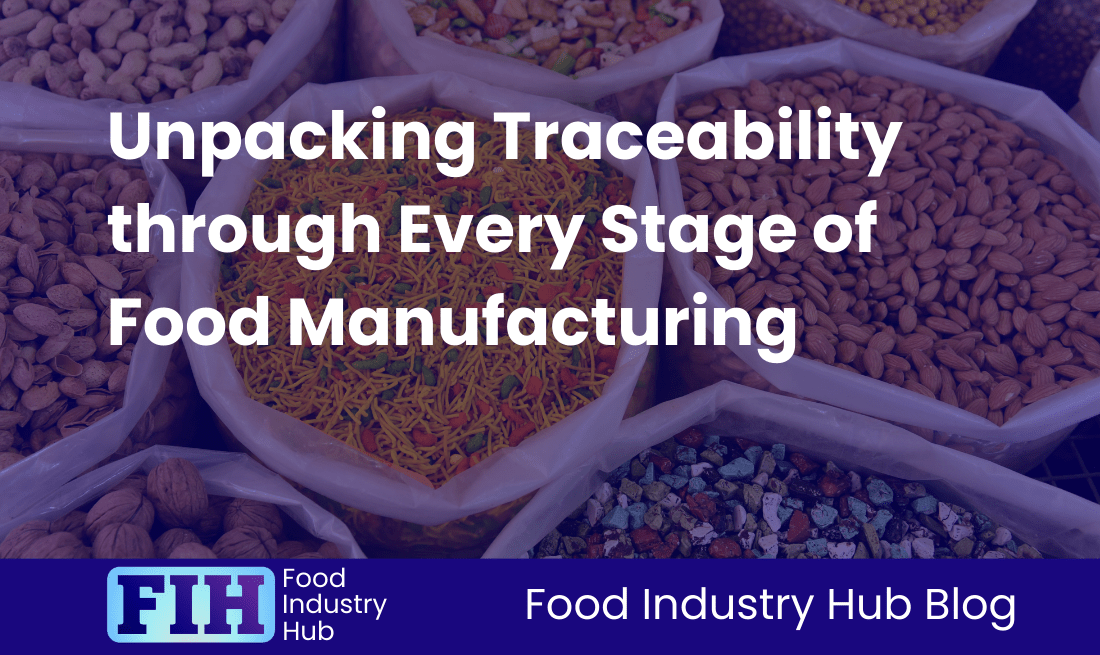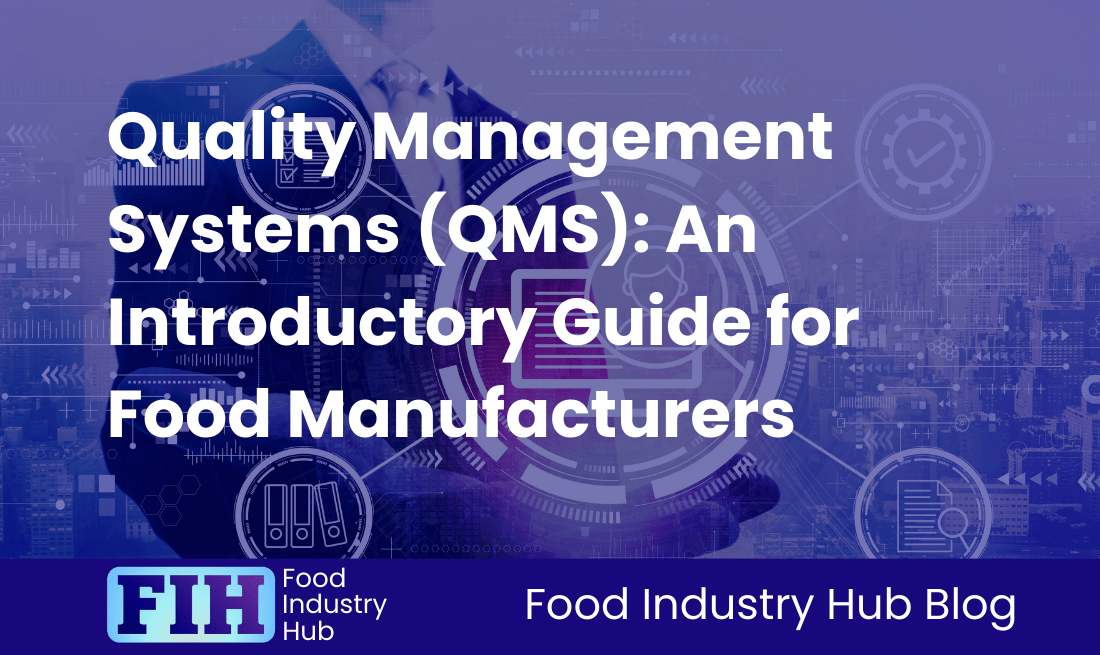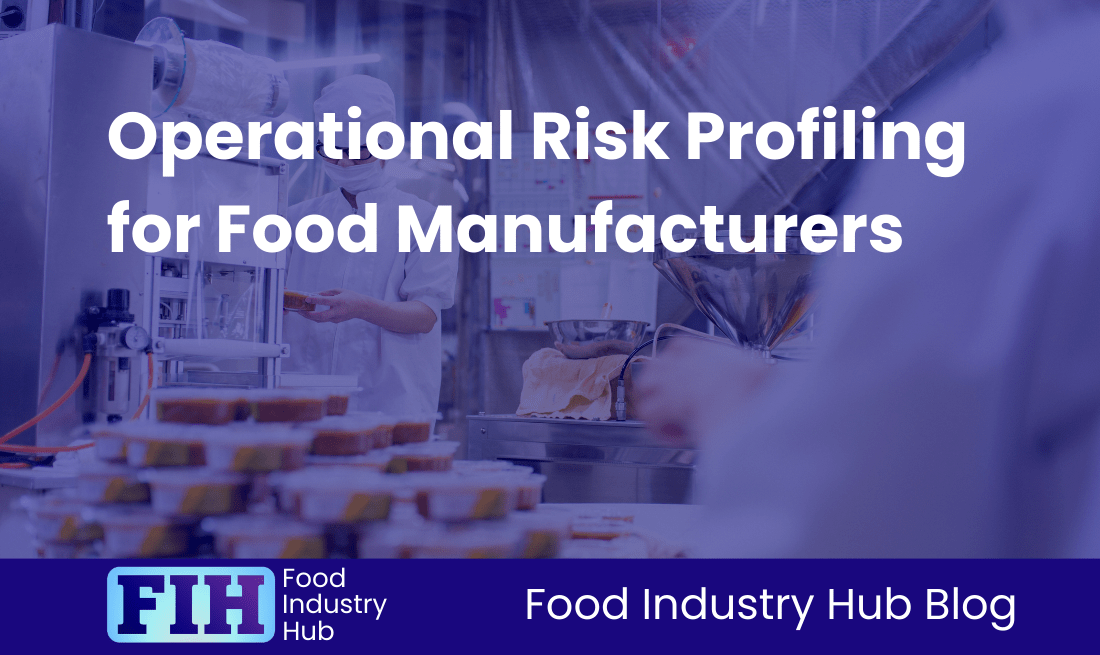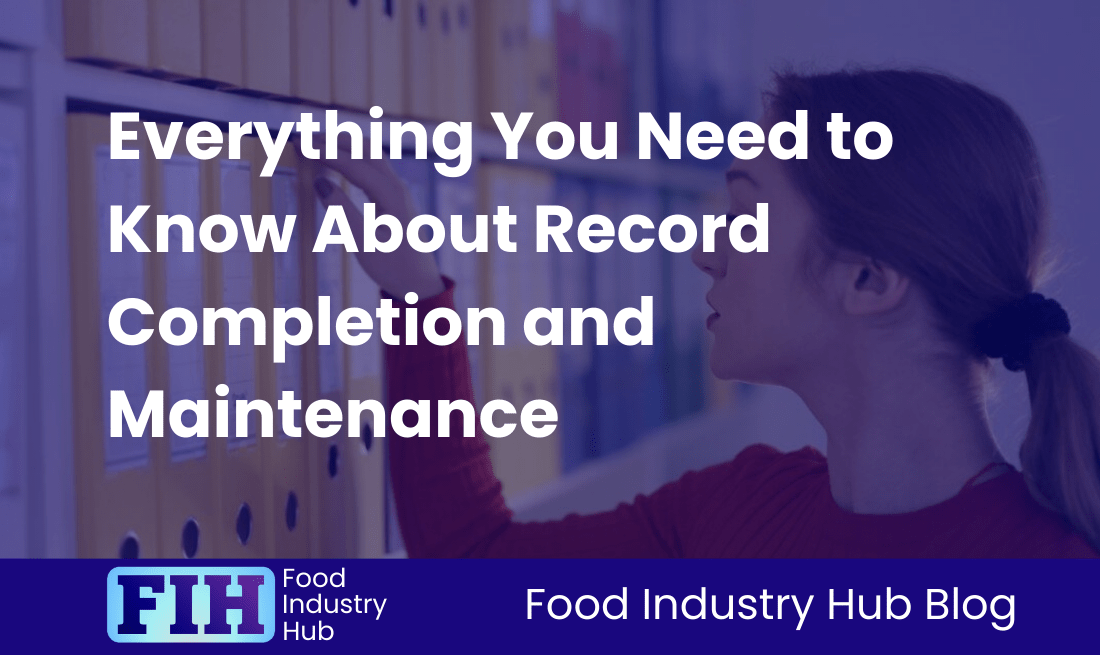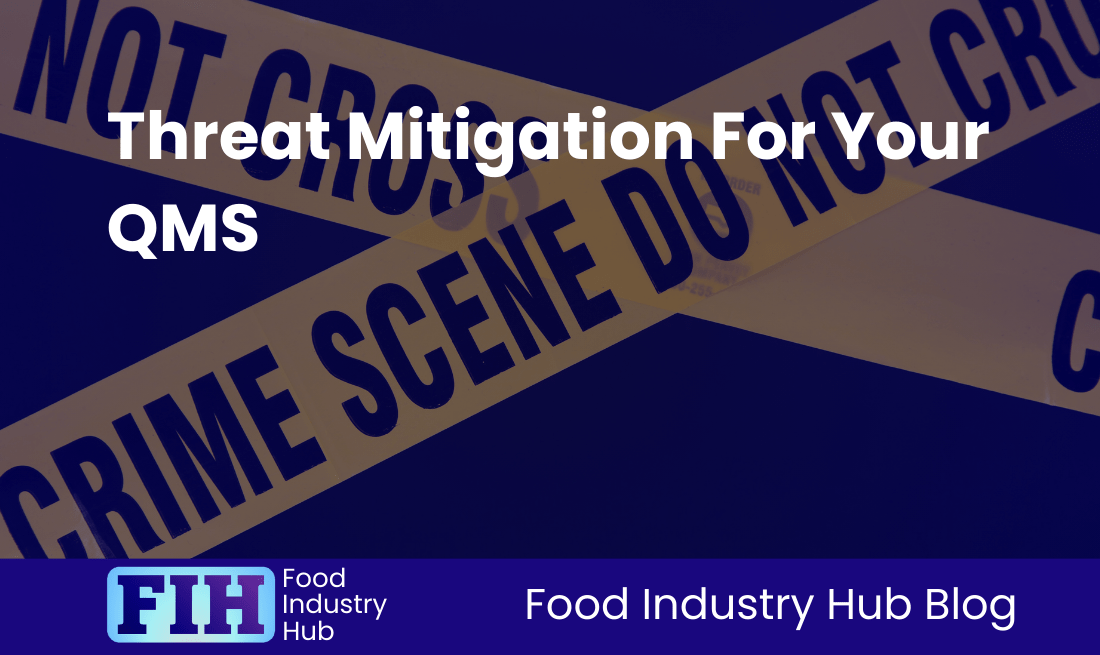Know: Food Safety and Quality Management Systems (FSQMS)
Contents
Introduction
Key Takeaways
Foundation of Food Safety and Quality Management Systems (FSQMS)
Regulatory Frameworks and Compliance
Implementation Strategies for FSQMS
Senior Management Commitment
Hazard Analysis and Critical Control Points (HACCP)
Supplier and Raw Material Approval
Incident Management and Product Recall
Food Defense and Site Security
Designing a Facility for Optimal Food Safety
Calibration and Equipment Maintenance
Technological Advancements in FSQMS
Challenges and Future Directions in FSQMS
Conclusion
Introduction
The Food Safety and Quality Management System (FSQMS) serves as integral structures within the food manufacturing sector, securing the safety of food products, ensuring they align with quality measures, and meet regulatory requirements. These systems form a comprehensive plan that unifies multiple controls, extending from raw material procurement to production and delivery – bolstering consumer trust and preserving public health.
What is FSQMS?
The FSQMS embodies a collection of management interventions implemented by food manufacturers to recognise, evade, and control potential food safety hazards and quality inconsistencies throughout the food production process. This system weaves the aspects of Food Safety Management Systems (FSMS) and Quality Management Systems (QMS) into a unified whole, reinforcing the integrity and safety of food products in compliance with international standards such as ISO 22000 and HACCP principles. Certifications like BRCGS and Safe Quality Food (SQF) further strengthen these systems by benchmarking them against established quality standards.
The Role of FSQMS in Food Manufacturing
The FSQMS in a food manufacturing setting mitigates the risk of foodborne diseases by identifying and controlling hazards that may present danger to consumers. It aids in maintaining adherence to food safety laws, reducing the chances of legal complications. An efficient FSQMS can also protect a brand’s reputation by minimising product recalls, complaints, and returns through persistent quality assurance practices. Finally, the FSQMS aids in fostering trust and communication among suppliers, manufacturers, distributors, and consumers, all of whom play a pivotal role in food safety management.
Key Components of FSQMS
Noteworthy constituents of an FSQMS include several important elements. Certainly, the dedication of senior management is fundamental, as their leadership assures adequate resource allocation, defining clear policies, and promoting a culture of continual improvement. Hazard Analysis and Critical Control Points (HACCP) form a foundational aspect of FSQMS, emphasising preventive controls that recognise, evaluate, and manage food safety hazards before they transpire. Effective supplier and raw material approval procedures also carry significant weight, ensuring safe practices and reducing contamination likelihood in the initial phases of the supply chain. Additionally, incident management employs methodical processes for managing nonconformities, complaints, and recalls, thereby facilitating organised responses to potential food safety concerns and reducing negative impacts on consumers.
Integration of FSQMS
An integrated FSQMS unites these elements into a comprehensive system, ensuring that all significant areas, such as document control, employee training, and site security, are harmoniously managed to preserve high standards in food safety and quality assurance. This integration heightens operational efficiency, diminishes redundancy, and enhances the overall effectiveness of quality management efforts within the food manufacturing industry.
Key Takeaways
This section offers key insights on the crucial elements of Food Safety and Quality Management Systems (FSQMS), highlighting the impact of senior leadership, the role of HACCP in proactive food hazard control, the importance of supplier monitoring, the need for robust incident management and the interconnected nature of FSQMS systems. These components collectively work towards promoting safety, legality, and the authenticity of the food supply chain.
The Role of Senior Leadership in Promoting a Safety-Centred Culture
In food manufacturing, senior leadership holds a significant role in forming a culture that champions food safety. Leadership goes beyond simply backing policies; it includes active promotion of safety practices and establishing high standards that are sincerely followed throughout the establishment. Leadership has the power to set the tone for accountability and enforce the idea that everyone shares the responsibility of food safety. Regular participation in audits and performance assessments signals that food safety is a persistent journey that requires active involvement from all team members. This engagement crafts an environment open to betterment, wherein safety protocols adapt in response to insights from the entire team.
Significance of HACCP in Proactive Control of Food Hazards
Hazard Analysis and Critical Control Points (HACCP) is the foundation of proactive food safety management. This systematic model is designed to recognise, assess and manage possible threats during the food manufacturing process. By focusing on the most significant control points, HACCP aims to deter contamination before it can negatively impact the safety of the product. Its inclusion in the Food Safety and Quality Management System (FSQMS) guarantees adherence to regulatory standards, affirming the commitment towards food safety to consumers and stakeholders.
Rigorous Supplier and Raw Material Monitoring for Risk Reduction
Active monitoring of suppliers and raw materials is a key measure for lessening risks in food manufacturing. A well-structured supplier approval procedure ensures that all materials adhere to the expected safety and quality measures. Keeping a real-time check on performance uncovers issues that could possibly lead to potential threats, hence retaining control over product quality. This precautionary approach in supplier management guarantees safe materials for the production process, enhancing the overall food safety and integrity.
Cohesive Incident Management for Dealing with Emergencies
A reliable incident management system can swiftly address emergencies like product recalls or contamination incidents. Having comprehensive protocols for incident detection, recording, and investigation enables organisations to act fast, minimising risks on consumer safety. Clear and transparent communication channels during emergencies strengthen trust. Reviews of incidents contribute to ongoing improvement by identifying and rectifying deeper issues, thus averting future recurrences.
The Interconnection of FSQMS Systems
Various components of the FSQMS are interconnected and they collaboratively ensure product safety and quality assurance. Coordinating elements like HACCP, supplier management, and incident resolution form a comprehensive safety network for food manufacturing. This coordination enables collaborative efforts across departments, assuring that safety measures are consistently upheld throughout the production process. As these systems support one another, they build a comprehensive structure that supports adherence, quality assurance, and consumer confidence.
The combination of elements such as leadership commitment, structured hazard control through HACCP, vigilant supplier monitoring, an efficient incident management system, and interconnected FSQMS systems lay the foundation for high-quality food safety and quality management.
Food Industry Hub Management Systems can significantly boost the effectiveness of your food safety and quality management system, leading to improved confidence and elevated quality assurance throughout your operations.
Foundation of Food Safety and Quality Management Systems (FSQMS)
Clarifying FSQMS and Its Significance
Food Safety and Quality Management Systems, or FSQMS, are structured frameworks that food manufacturing companies apply to ensure the consistent production of safe and quality food products. The primary objective of the FSQMS is to pre-emptively ward off food safety hazards like allergenic, biological, chemical, and physical contaminants which could harm consumer health. This approach is not only imperative for preserving public health but it also upholds consumer faith in food products and shields the company’s reputation in the market.
The FSQMS’s role is equally important in guaranteeing regulatory compliance with both international and local food safety laws and standards, a key requirement for legal operation and achieving market access. Complying with FSQMS expectations notably minimises the chance of product recalls and customer complaints, thereby boosting overall business sustainability and operational efficiency. Implementing effective FSQMS processes also cultivates a culture of continuous improvement, facilitating adaptation to fresh regulations and changing customer expectations.
Main Elements of FSQMS
The FSQMS integrates several interrelated components that collectively support food safety and quality assurance. A standard framework employed within the FSQMS is the ISO 22000 standard, which amalgamates acknowledged methodologies and principles into a guide for food businesses in risk management and quality control.
Key components include:
- Interactive Communication: Establishing trust and communication among stakeholders such as suppliers, distributors, and consumers is essential for effective food safety management across the supply chain.
- System Management: The FSQMS includes documented policies and procedures that outline responsibilities and resource management to achieve safety objectives. This systematic management approach instils continuous improvement and accountability within the organisation [Source: FHA Insider].
- Hazard Analysis and Critical Control Points (HACCP): HACCP is a significant methodology within the FSQMS, helping to identify, evaluate, and control hazards at critical junctures in the food production process, dramatically reducing the risks associated with food safety.
- Risk Management Methodologies: These methodologies provide an evaluation and priority assignment of potential environmental hazards, allowing food manufacturers to examine and mitigate allergenic, biological, chemical, or physical risks within their operational processes.
- Documentation: Complete record keeping is indispensable within the FSQMS. It includes hazard assessment logs, critical control points, corrective actions, and audits, which are necessary for providing traceability and certifying compliance with regulatory requirements.
FSQMS’s Role in Curtailing Foodborne Diseases and Aiding Certification
The deployment of an FSQMS directly correlates to a significant decrease in incidents of foodborne diseases. By systematically identifying and controlling potential hazards through testing and strict control protocols, the FSQMS assures that food contamination is reduced throughout the production process.
The FSQMS actively supports food manufacturers’ pursuit of achieving certifications such as ISO 22000. Accomplishing this certification entails passing extensive external audits validating the effectiveness of the implemented food safety management system. These certifications add to a company’s credibility, inspire adherence to safety standards, and grant access to new markets by reassuring both consumers and business partners about the safety and quality of food products.
In essence, the FSQMS underpins the integrity of food safety practices within the manufacturing sector and also sets the groundwork for achieving superior quality standards and regulatory compliance. The incorporation of stringent risk management, recognised standards, and comprehensive documentation within the FSQMS is instrumental in preventing foodborne illnesses and assists businesses in preserving their competitive edge in a challenging market.
Regulatory Frameworks and Compliance
UK Food Safety Standards Overview
Several key legislations, notably the Food Safety Act 1990, primarily drive the UK’s food safety regulatory framework. The act underlines that food businesses must take responsibility to ensure their products are safe, suitable for consumption, and labelled correctly. The monitoring of compliance is under the purview of the Food Standards Agency (FSA), which provides relevant guidance and manages enforcement at the local authority level. To demonstrate diligence, manufacturers must implement measures to prevent contamination and ensure the safety of their products [Source: FSA].
Key EU Directives for Food Manufacturers
Despite leaving the EU, the UK still follows certain EU directives owing to retained regulations. The General Food Law Regulation (EC) No 178/2002 sets traceability and safety protocols to be adhered to by food businesses, and continues to be significant. This regulation promotes core principles such as the precautionary principle, which forms the basis for efficient risk management in food safety.
The EU Food Hygiene Package, including regulations like EC No 852/2004, prescribes rigorous hygiene standards for food production and processing sectors and the application of Hazard Analysis and Critical Control Points (HACCP) principles. These regulations ensure compliance with food safety standards and remain relevant for UK manufacturers navigating the evolving regulatory landscape post-Brexit.
The US Food Safety Modernization Act (FSMA) Features & Contrast with UK and EU Regulations
The Food Safety Modernization Act (FSMA), instituted in 2011 in the US, marked a considerable change from reacting to food safety issues to preventing them. Fundamental attributes of the FSMA encompass preventive controls for manufacturers, thorough food safety plans based on risk evaluation, and augmented traceability necessities for both domestic and imported foods. The act provided the FDA with firm enforcement authority, including mandatory recall powers.
The differences between the UK and EU frameworks and FSMA are particularly noticeable. While UK and EU regulations traditionally underscore holistic safeguarding and traceability, FSMA’s proactive method demands preventive measures from manufacturers. The US also imposes stricter traceability procedures and mandates formal programmes for verifying foreign suppliers, which intensifies the task of adhering to regulations for international food manufacturers.
| Aspect | UK/EU Regulatory Approach | US FSMA |
|---|---|---|
| Regulatory Focus | Mostly prescriptive with a focus on cleanliness and hazard systems. | Moves towards a preventive stance requiring comprehensive safety plans. |
| Enforcement | Mostly local enforcement agencies, with the EU facilitating compliance. | FDA has extensive powers, including the ability to enforce recalls. |
| Supplier Verification | Basic traceability supported by food safety assurances without rigorous foreign supplier requirements. | Compulsory, specific foreign supplier programmes required. |
| Inspection Regimens | Risk-based procedures under Regulation 882/2004. | Increased frequency based on risk categorisation under FSMA. |
These comparisons highlight the need for food manufacturers to stay adaptable in navigating diverse regulatory frameworks, implementing Food Safety and Quality Management Systems (FSQMS) effectively to meet local and international compliance obligations. This understanding is essential to lessen risks associated with food safety and to sustain persistent consumer trust in the food manufacturing sector.
Implementation Strategies for FSQMS
The introduction of a Food Safety and Quality Management System (FSQMS) necessitates the use of well-organised, risk-based methods in alignment with international benchmarks like ISO 22000 and the Global Food Safety Initiative (GFSI). The success of FSQMS implementation hinges on the application of varied strategies, all aimed at boosting food safety and quality throughout the production process.
One such strategy is the creation of detailed, documented procedures. Organisations must formulate Standard Operating Procedures (SOPs) covering all key stages, ranging from receiving raw material, processing, packaging, storage, to transportation. A periodic review and update of these SOPs is necessary to adhere to food safety standards and regulations.
The incorporation of a risk-based approach is fundamental to the efficacy of FSQMS. This approach involves the identification, assessment, and control of potential hazards via methodologies like Hazard Analysis and Critical Control Points (HACCP). Here, the determination of Critical Control Points (CCPs) and the establishment of effective monitoring protocols help to minimise risks to food safety.
It is also necessary to institute constant monitoring and verification procedures to preserve the integrity of food safety controls. Frequent internal audits, equipment calibration, and process validation not only support compliance, but also allow for quick rectification of any deviations from established benchmarks.
Integral to the successful implementation of any FSQMS is a strong food safety culture within the organisation. To this end, there needs to be unwavering commitment from the leadership and all-embracing training schemes that ensure every employee understands their role in maintaining food safety and quality standards [Source: FSNS].
Importance of Gap Analysis in FSQMS Implementation
Gap analysis is a principal approach in the implementation of an FSQMS. This analysis helps organisations to identify discrepancies between their current practices and required standards, directing efforts and resources to areas in need of improvement. By identifying what is lacking in food safety and quality management, organisations can establish realistic objectives and frameworks for enhancement that align with compliance requirements.
A comprehensive gap analysis not only prepares organisations for audits and regulatory compliance but also cultivates a mindset geared towards continuous improvement. Food manufacturing businesses can elevate their operational effectiveness and commitment to food safety by diligently documenting efforts made to bridge these gaps.
Risk Assessment Processes and Methodologies
The risk assessment process within an FSQMS is a significant mechanism for identifying, evaluating, and managing food safety hazards. This process involves a sequence of systematic steps:
- Hazard Identification: Acknowledgement of allergenic, biological, chemical, and physical hazards that might introduce risks throughout the production cycle.
- Risk Analysis: Examination of the severity and probability of each hazard, creating a risk profile.
- Critical Control Points (CCPs) Determination: Identification of control points where hazards can be eliminated or reduced to acceptable levels, employing HACCP principles.
- Monitoring and Verification: Establishment of procedures for continuous monitoring of CCPs, ensuring they operate within defined critical limits.
- Documentation and Review: Maintenance of detailed records of monitoring results, corrective actions undertaken, and verification processes conducted for transparency and accountability in food safety measures.
Adoption of these methodologies not merely enhances compliance with regulatory standards, but also strengthens the overall safety and quality management system.
Importance of Training and Raising Awareness Among Staff
Initiatives for training and awareness are pivotal to the successful rollout of an FSQMS. Comprehensive training programmes equip staff with the necessary knowledge to understand food safety hazards, adhere to procedures, and actively contribute to maintaining compliance. Training serves multiple objectives:
- Enhancing Competence: Staff with robust training are less likely to make mistakes that jeopardise food safety.
- Instilling a Culture of Safety: Encouraging shared responsibility for food safety among all employees promotes vigilance and proactive reporting of potential issues.
- Facilitating Compliance: Regular updates and training reinforce an in-depth understanding of regulatory changes, ensuring ongoing adherence to evolving standards.
- Improving System Performance: Educated staff positively impact monitoring, corrective actions, and documentation practices that boost FSQMS efficacy.
Creating a culture of awareness through consistent training not only complies with regulatory mandates but also enhances the safety and quality of food products, ultimately safeguarding public health and reinforcing the reputation of the food manufacturing business.
Senior Management Commitment
Influencing a Safety-first Culture
The role of senior management in establishing and maintaining a safety-first culture within food manufacturing organisations is paramount. Generating this environment requires a commitment from senior management that extends beyond compliance and regulatory certifications. It encapsulates the cultivation of shared values and behaviours prioritising food safety at all levels of the organisation. Research indicates that such firm cultures of food safety result in proactive employee behaviors, fewer non-conformities, and effective management of food safety risks [Source: Food Safety Magazine].
Senior management’s engagement in root cause investigations during non-conformity events plays a substantial role in reinforcing a culture of accountability and learning. Through this participation, systemic challenges are identified and rectified, thus ensuring the institution of effective corrective and preventative measures. All these factors enhance the resilience of an organisation against future incidents.
Senior management needs to establish clear roles, responsibilities, and accountability within the organisation. This involves a thorough breakdown of responsibilities pertaining to the Food Safety and Quality Management System (FSQMS), ensuring each team member understands their role in upholding food safety standards. This clarity enhances decision-making, compliance, and accountability across the organisation.
Resource Management and Policy Development
Efficient resource management and policy development are essential for endorsing the FSQMS. This includes senior management’s significant role in allocating appropriate resources for staff training and required infrastructure enhancements, which are integral to sustain a robust food safety culture. Continual development of employees ensures they remain proficient in food safety protocols, while investment in infrastructure boosts hygienic practices and operational efficiencies. Without adequate resources, the efficacy of the FSQMS can significantly diminish.
Senior management must ensure that strategic objectives align with everyday operational practices for thriving FSQMS enforcement. It’s importance to weave food safety objectives into the organisation’s daily operations. By embedding food safety in business planning and operational activities, senior management paves the way for successful FSQMS implementation, creating a seamless link between strategic goals and daily operations.
Senior management has an essential task of formulating and periodically updating policies that reinforce food safety and quality standards. These guidelines serve as pillars for employees in their daily operations and should exhibit best practices, regulatory requirements, and technological advancements. Active management of these policies not only confirms the organisation’s commitment to integrity and quality but also exhibits a proactive approach in addressing industry challenges.
The commitment of senior management is the backbone of an effective FSQMS. Their leadership is instrumental in establishing a robust food safety culture, ensuring resources align with training and infrastructure needs, and that clear policies are outlined and adhered to. This commitment ultimately drives compliance and excellence in food safety and quality.
Hazard Analysis and Critical Control Points (HACCP)
Understanding and Implementing HACCP Principles
Hazard Analysis and Critical Control Points (HACCP) proposes a systematic approach for the identification, evaluation, and control of food safety hazards within the manufacturing process. This framework mainly comprises seven core principles that, collectively, stand as a durable food safety plan:
- Hazard Analysis:
This initial step involves the identification of potential allergenic, biological, chemical, and physical hazards at each stage in the food production process. By thoroughly evaluating the severity and likelihood of these hazards, food manufacturers can accurately determine and control risk priorities. For instance, mitigating microbial contamination during handling becomes a significant priority, addressed through subsequent steps in the HACCP plan.
- Critical Control Points (CCPs):
CCPs are specific stages in the manufacturing process where controls can be applied to prevent or eliminate hazards. For example, sufficiently cooking food is a CCP that serves to destroy harmful pathogens [Source: UNL Food].
- Critical Limits:
These are measurable criteria—like temperature, time, and pH—that have to be established for each CCP to ensure safety outcomes are met. These limits must be built upon scientific evidence to ensure safety, such as setting the minimum cooking temperature for poultry at 165°F (74°C).
- Monitoring Procedures:
Persistent and systematic monitoring of CCPs is fundamental to validate that the critical limits are being adhered to. This principle should delineate who is in charge of monitoring, how it will be conducted, and the frequency of checks to assure compliance.
- Corrective Actions:
This principle outlines the procedures that must be taken when CCP monitoring shows deviation from the established limits. Corrective actions may entail halting production, adjusting processes, or recalling affected products to prevent them from reaching consumers [Source: FDA].
- Verification Procedures:
Processes to confirm the functionality of the HACCP system are essential. They typically involve internal audits, testing, and reviewing monitoring records.
- Record-Keeping and Documentation:
Precise documentation and record keeping are pivotal to sustaining compliance and continuous improvement. Accurate records of hazard analyses, CCP monitoring, and corrective actions facilitate effective communication and traceability within the food safety management system.
Identification and Management of Critical Control Points (CCPs)
Identifying Critical Control Points (CCPs) is a major component of the HACCP system. Effective CCP management incorporates several key activities:
- Identification Process:
Decision-making tools or flowcharts are utilised during the hazard analysis phase to discern important steps where hazards can be controlled. This step should focus on procedures like cooking, cooling, and packaging, where interventions are necessary for safety assurance.
- Setting Critical Limits:
Each CCP must have definite, objective limits to define an acceptable range for monitoring effective control. For instance, maintaining temperature control in thermal processing is essential.
- Ongoing Monitoring:
Regular inspections and adjustments at CCPs are required to ensure they remain within set critical limits. Activities may include temperature recording, process audits, and equipment checks.
Steps for Successfully Drafting and Implementing a HACCP Plan
Constructing and implementing a HACCP plan within the food manufacturing environment requires a methodical approach, as follows:
- Form a Multidisciplinary HACCP Team:
Gather a team comprising individuals from various areas such as production, quality assurance, microbiology, and engineering to ensure a broad understanding of potential hazards.
- Define the Product and its Intended Use:
Clearly describe the product characteristics including ingredients, packaging, distribution methods, and end-user information.
- Create a Detailed Process Flow Diagram:
Outline every step from receiving the raw material to final dispatch. This diagram should clearly illustrate every processing step.
- Conduct a Thorough Hazard Analysis:
Identify and evaluate hazards at each step using the principles defined earlier.
- Determine CCPs:
Discern critical steps in the process using decision tree analysis or similar analytical methods.
- Set Critical Limits for Each CCP:
Establish specific measurable limits based on scientific data.
- Develop Monitoring Procedures:
Determine how and by whom monitoring will occur, detailing responsibilities and methods.
- Define Corrective Actions:
Document actions to be taken if monitoring results indicate a deviation from critical limits.
- Implement Verification Activities:
List procedures to regularly confirm the functionality and effectiveness of the HACCP plan.
- Maintain Comprehensive Documentation:
Establish a rigorous record-keeping system to document activities related to the HACCP plan.
- Train Personnel:
Ensure all team members are aware of their responsibilities within the HACCP framework.
- Review and Update Regularly:
Adapt the HACCP plan as needed to accommodate operation changes, new regulations, or new hazard information.
Synergising HACCP with Your Food Safety and Quality Management System (FSQMS)
Importance of Integrating HACCP Principles with Other Components of Your FSQMS
Integrating HACCP within a Food Safety and Quality Management System (FSQMS) is essential for comprehensive food safety management. This integration underlines the importance of a united approach. This incorporates senior management commitment, supplier approval, and corrective action systems. It also improves cross-department communication and facilitates continuous improvement in food safety practices.
Applying HACCP Findings Into Broader FSQMS Strategies
The information and insights gathered from HACCP monitoring can be strategically applied to the overall FSQMS. Utilising HACCP analysis helps:
- Refine supplier and raw material approval processes by identifying risks at the source.
- Develop training programmes focused on identified hazards to increase employee awareness.
- Reinforce incident management protocols, enabling swift response to any safety incidents identified through HACCP.
Bolstering Food Safety Through Cross-Departmental Collaborations
Cooperation across departments is necessary for effective HACCP implementation. Inviting participation from departments such as quality assurance, production, maintenance, and procurement helps to establish a holistic food safety strategy. This collaboration allows for:
- Unified efforts in maintaining the food safety culture throughout the business.
- Rapid and coordinated responses to CCP deviations or any non-conformance.
- Continuous enhancement of safety protocols and practices across the entire facility.
This structured and collaborative approach to HACCP does more than just aiding in regulatory compliance; it also reinforces the safety assurance processes essential to success in food manufacturing.
Sign-up for the Food Industry Hub Mail Service
We regularly produce new content for food industry professionals, and the Food Industry Hub Mail Service is the best way to stay up to date with the latest additions.
Signup today to be added to the Food Industry Hub mailing list.
Supplier and Raw Material Approval
Evaluation and Mitigation of Risks
The rigour of the supplier approval process in food manufacturing remains instrumental in mitigating risks. The process ensures raw materials and services comply with essential safety, quality, and regulatory standards. Let’s delve into this in more detail.
Detailed Procedure of Supplier Approval
The following steps detail the typical procedures of supplier approval:
- Audit and Inspection: To substantiate compliance with food safety protocols, such as HACCP and Good Manufacturing Practices (GMPs), prospective suppliers are subject to thorough audits. These may be conducted onsite or remotely. Necessary documents like HACCP plans and certifications like ISO 22000 or those endorsed by the Global Food Safety Initiative (GFSI) are scrutinised.
- Approval Decision: Suppliers are categorised as approved, conditionally approved (pending corrective actions), or rejected based on their adherence to prescribed criteria following the audit.
- Ongoing Supplier Evaluation: Suppliers that have received approval are subsequently subject to regular performance monitoring. This encompasses re-audits and ongoing communication to ensure their persistent commitment to food safety and quality standards.
Using VACCP and TACCP in Risk Assessment
Methodologies such as VACCP (Vulnerability Assessment Critical Control Points) and TACCP (Threat Assessment Critical Control Points) are integral to identifying and assessing risks within the framework of supplier approval:
- VACCP – Assesses vulnerabilities to potential food fraud like adulteration and mislabelling, thus safeguarding the integrity of raw materials entering the supply chain.
- TACCP – Identifies threats, inclusive of deliberate acts of sabotage or food terrorism, thereby fortifying food defence.
Evaluating Supplier Performance and Ensuring Compliance
To uphold food safety and quality standards, ongoing evaluation of supplier performance post-approval, along with ensuring compliance with established criteria, is a requirement. Therefore, processes such as:
- Regular Auditing and Reviews: Systematic evaluation of supplier performance using factors like delivery punctuality, consistency of product quality, adherence to food safety standards, and responsiveness to corrective actions is imperative.
- Documentation and Traceability: Suppliers must maintain robust traceability from raw material sourcing to product distribution to facilitate effective recall procedures and incident management.
By establishing and maintaining a robust approval and monitoring system, food manufacturers can reduce risks associated with raw materials and secure continued compliance with safety standards.
Ongoing Supplier Performance Monitoring
Key Performance Indicators for Persistent Supplier Evaluations
To encourage suppliers to maintain consistent performance, manufacturers utilise essential data from Key Performance Indicators (KPIs) to make real-time assessments. Favourable metrics in the food manufacturing sector include:
- Delivery Performance: Assess by tracking on-time delivery rates and detecting inventory management problems.
- Quality Metrics: Monitor conformance to product specifications, inclusive of defect rates and general adherence to safety standards.
- Communication Effectiveness: Measure responsiveness to inquiries and efficiency in resolving arising issues.
These KPIs facilitate timely corrective actions by identifying any declining performance areas and subsequently enhance supplier reliability in the long term.
Continuous Improvement Strategies in Supplier Management
For effective supplier management, the need for constant improvement is considerable. Several beneficial strategies include:
- Regular Performance Reviews: Conduct regular supplier performance evaluations against benchmark standards and KPIs, fostering an atmosphere of transparency and facilitating communication to resolve arising issues.
- Training and Resources: Suppliers provided with food safety standards training and compliance resources can enhance their operational capabilities.
- Adoption of Innovations: Inspire the adoption of new technologies and methodologies amongst suppliers. This helps to drive efficiency and alignment with evolving regulatory requirements.
Taking a proactive approach supports an environment of continuous improvement, ensuring food safety, and quality management objectives within the FSQMS are reliably fulfilled and often exceeded.
Incident Management and Product Recall
Planning for and Responding to Incidents
Developing a Comprehensive Product Recall Plan
A well-rounded product recall plan is fundamental for efficiently managing incidents that could affect the safety, legality, and quality of food during the manufacturing process. This plan needs to cover several key elements:
- An effective incident management team comprising trained team members who can handle emergency situations like product withdrawals and recalls. They should be well-versed in both the regulatory requirements and internal protocols, ensuring swift responses. [Source: Food Safety Magazine].
- A current list of key contacts should cover both internal stakeholders, such as quality assurance staff, and external contacts. These might include regulatory authorities, labs, and legal advisors, so communications can be streamlined in a crisis.
- Clear communication protocols designed to activate swiftly. This ensures messages can be communicated efficiently both internally and externally even beyond office hours, with pre-prepared templates for consistency.
The Role of Regular Mock Recalls
Regular mock recalls play a key role in preparing and assessing the efficiency of the product recall plan. These simulations serve several essential functions:
- They provide insights into the practical functioning of traceability systems, allowing organisations to quickly identify affected products – ideally within four hours of detection for perishable goods.
- They highlight shortfalls in communication protocols and logistics – areas that often struggle during an actual incident. These exercises reveal weaknesses that can be addressed proactively, prior to a real recall.
- Apart from offering insights, regular mock recalls also create training opportunities for staff at various levels, ensuring that everyone is familiar with their roles and responsibilities during an emergency.
Key Elements of Effective Communication During a Recall Event
Effective communication during the recall process is key to protecting consumers, and maintaining the integrity of a brand. It is vital to ensure:
- Prompt, accurate exchange of information internally to align all departments and stakeholders with the ongoing actions during the recall.
- Clear, coherent messages aimed at external groups, including consumers, regulatory bodies, and media. It helps manage expectations, offers instructions for product returns and prevents misinformation.
Conducting a Post-Recall Review
Understanding Root Cause Analysis Following a Recall
A Root Cause Analysis (RCA) conducted after a recall is crucial to understand the underlying reasons for the occurrence. The RCA process includes:
- Exploring connections between symptoms and root causes using methodologies such as the 5 Whys or fault tree analysis, ensuring a comprehensive understanding of the issues.
- Engaging cross-functional teams to provide a comprehensive view of the problem, incorporating perspectives from quality control, production, and regulatory compliance.
Preventive Measures and Corrective Actions to Avoid Recurrence
Following the findings of the RCA, organisations must implement preventive and corrective measures such as:
- Refining HACCP plans to incorporate new information about risks and control measures. This might include adjusting critical control points based on specific vulnerabilities highlighted during the analysis.
- Improving training protocols tailored to mitigate the identified weaknesses in food safety practices among staff.
Assessing the Effectiveness of Incident Management Strategies
To determine the efficacy of incident management strategies, organisations should evaluate:
- The execution of recall actions, by measuring compliance with both industry standards and internal protocols. Evaluation should also assess whether timelines and stakeholder notifications were met as planned.
This comprehensive framework for incident management and product recall integration within FSQMS shows a commitment to safety, compliance, and operational excellence throughout all food manufacturing processes.
Food Defense and Site Security
Preventing Threats to Food and Site Safety
A robust food defence management plan is pivotal for food manufacturers. It fortifies facilities against intentional contamination and a variety of security threats. Let’s explore the important elements of these plans:
Vulnerability Assessment: Conducting a systematic evaluation helps identify weak spots in the operation of facilities where intentional contamination might happen. Assessments study security gaps and the probability of unnoticed contamination. They also examine potential pathways for the spread of contamination. Paying attention to both insider and outsider threats is important for these assessments. As an example, such evaluations highlight locations like loading docks and processing zones that may lack adequate supervision or access controls. Employing vulnerability assessments aids manufacturers in safeguarding public health and consumer trust.
Mitigation Strategies: After discovering potential weak spots, the next step is enacting strategies to help control identified risks. This might include access management tactics like locks on sensitive equipment to prevent unauthorised entry. Offering thorough training to security staff and setting up protocols to identify irregular behaviours add further layers of safety.
Monitoring and Verification: It’s important to have a well-structured monitoring plan to ensure the effectiveness of mitigation measures. Scheduling regular audits and assessments can include checks that locks are secure on key equipment and surveillance systems are functioning well. This constant vigilance strengthens security while promoting staff awareness about these procedures.
Corrective Actions: Establishing protocols to respond to observed security breaches or failings is necessary. This means offering clear instructions on the immediate steps to take during an incident and having means to validate the effectiveness of corrective actions. Regular mock drills simulating potential breaches can reinforce preparedness and reduce panic during real events [Source: FSNS].
Training Staff to Detect and Report Suspicious Activities: Having trained and empowered staff is a key aspect of a food defence plan. Regular training sessions should be devoted to recognising and rapidly reporting unusual activities. Having a clear reporting system in place enhances the overall security posture of the workplace [Source: Mississippi State University].
Strategies for Counteracting Food Fraud and Adulteration
Food fraud and adulteration put both consumer trust and product integrity at risk. Implementing several strategies can help mitigate these risks:
- Supply Chain Audits: Performing regular audits on suppliers can pinpoint compliance gaps and ensure that all involved parties in the supply chain meet FSQMS standards. These checks help in reducing fraud risk and safeguarding product authenticity [Source: Quality Assurance Magazine].
- Ingredient Testing: Implementing thorough testing protocols can confirm the authenticity of ingredients and prevent the usage of adulterated or counterfeited substances.
- Risk Assessment and Mitigation: Identifying weak points in the supply chain is necessary. Establishing a risk evaluation approach allows manufacturers to proactively address potential issues associated with food fraud.
- Educational Initiatives: Raising the level of awareness among both employees and consumers about the potential risks of food fraud is an important step. Well-informed stakeholders are more adept at recognising and reporting unusual occurrences, thereby improving overall food safety.
Impacts of Food Authenticity on Consumer Trust and Market Access
Authenticity in food products has a profound influence on consumer trust. When consumers perceive products as genuine and their sources as transparent, they tend to be more loyal to those brands. On the other hand, any incidence of fraud or adulteration could damage a brand’s credibility, leading to substantial economic losses.
In terms of market access, meeting authenticity standards not only makes entering domestic and international markets easier but also strengthens competitive standing. Manufacturers that prioritise food authenticity are likely to be perceived as dependable partners by retailers and consumers, which could open up more market opportunities. As a result, taking a proactive stance towards maintaining compliance, authenticity, and transparency is of great importance to food manufacturers looking to excel in an ever-more scrutinised market space.
Designing a Facility for Optimal Food Safety
The Role of Facility Layout in Preventing Cross-Contamination
The facility layout can be significantly influential in food safety by reducing the risk of cross-contamination between different product stages. Key strategies include:
Segregation of Areas: Designating distinct areas for raw materials, processing, and finished products helps prevent unintentional contact with allergens or contaminants. Segregating is key in maintaining alignment with HACCP principles, ensuring that different product categories are handled in a manner that avoids contamination.
Flow of Product and Personnel: Having a unidirectional flow for materials—from receipt to processing to dispatch—helps reduce the risk of backtracking and decreases the likelihood of contamination. Well-designed paths ensure that staff movement won’t lead to cross-contamination of different zones, which is significant in maintaining product integrity and adherence to food safety regulations.
Recommendations for Efficient and Safe Flow Layouts
Introducing physical barriers like walls and doors can augment the separation of areas within the production process, boosting containment and cleanliness. Designated entry points with corresponding sanitation protocols assist in upholding hygiene standards. They ensure staff and materials don’t unintentionally introduce contaminants into clean zones.
The Benefits of Using Positive Air Pressure in Processing Areas
The use of positive air pressure in processing areas is a useful strategy to control airborne contaminants. This method not only excludes microbial and allergen particles from processing areas but it also minimises the risk of cross-contamination by maintaining the flow of air.
Collectively implementing these elements of food defence and optimal facility design bolsters the standards of Food Safety and Quality Management Systems (FSQMS), enhancing enduring safety and integrity in food manufacturing environments.
Calibration and Equipment Maintenance
Importance of Measurement Accuracy
Regular Calibration of Equipment for Accurate Measurements
Calibration plays a key role in establishing that the equipment used in food manufacturing yields accurate and reliable measurements that are instrumental in upholding food safety and quality. Adjusting measurement instruments, such as thermometers, metal detectors, and scales to verified standards, verifies that critical control points are properly functional so hazards can be effectively monitored. For instance, inaccurate thermometers might not recognise unsafe cooking temperatures, thereby increasing the likelihood of foodborne illnesses, and unadjusted metal detectors might not detect physical contaminants in products. Thus, ensuring the precision of calibration is necessary for consumer protection and adherence to food safety regulations, thus avoiding expensive penalties and product recalls.
Overview of Predictive Maintenance for Efficient Operations
Employing predictive maintenance strategies, through the use of equipment condition monitoring data, enables proactive servicing before equipment becomes faulty or drift out of calibration. This considerably minimises incidents of unplanned downtime and expensive repairs, while guaranteeing that essential food safety control equipment operates consistently. Predictive maintenance aids in achieving FSQMS goals by ensuring that the performance of equipment is maintained, which is essential in protecting the execution of food safety controls, such as temperature regulation and contaminant detection.
Maintaining Detailed Documentation for Calibration and Maintenance Activities
Keeping comprehensive and precise records of calibration and maintenance activities is important for traceability, accountability, and continuous improvement within an FSQMS. Documentation authenticates that equipment has been calibrated at the necessary intervals, identifies any deviations, and records the corrective actions taken. This transparency supports not only internal audits and external regulatory inspections but also proves compliance with food safety standards. Over and above that, maintaining historical logs of equipment performance aids in refining calibration schedules and maintenance plans, which enhances overall operational efficiency and food safety assurance.
Compliance Through Document and Record Control
The Significance of Comprehensive Records in Maintaining Regulatory Compliance
Having comprehensive document and record control is essential for adhering to the thorough requirements of food safety standards such as ISO 22000 and GFSI-benchmarked schemes. Thorough documentation of calibration, maintenance, and corrective actions provide proof that critical control points are monitored and managed effectively. These records aid audits and certification processes, ensuring that food manufacturers are able to demonstrate compliance with legal and industry standards.
Proactive Management of Non-Conforming Devices and Corrective Actions
An effective FSQMS includes mechanisms for identifying and managing non-conforming equipment – devices identified as uncalibrated or defective – and swiftly implementing corrective actions to prevent food safety risks. This process includes isolating non-conforming devices, conducting a root cause analysis, recalibrating or repairing, and retesting before reintroduction into operations. Appropriate documentation of these steps guarantees traceability and continuous improvement, reducing the risk of product contamination and safety breaches.
Ensuring Compliance with Relevant Standards Through Robust Documentation
Robust documentation systems ensure that all calibration and maintenance activities meet the requirements of external standards (e.g., FSA, FDA, GFSI) and align with internal food safety policies. This structured approach supports continuous improvement by highlighting trends and identifying areas for process enhancement. Compliance through document and record control not only protects consumer health but also strengthens the organisation’s reputation and operational sustainability in the competitive food manufacturing sector [Source: Food Safety Magazine].
In food manufacturing, calibration and equipment maintenance are necessary practices that underpin food safety and quality management systems. Their effectiveness is heightened by proactive maintenance strategies and meticulous documentation, which together uphold regulatory compliance and continuous operational excellence.
Technological Advancements in FSQMS
Food manufacturing professionals are witnessing far-reaching transformations in Food Safety and Quality Management Systems (FSQMS). These changes are facilitated by the integration of cutting-edge digital technologies, artificial intelligence (AI), and automation. These technological innovations are instrumental in enhancing operational efficiency, compliance standards, and fostering a stronger bond of trust with customers within the industry.
Adopting Automation and AI
Digital Technologies: Catalysing Change in FSQMS
Digital technologies are at the forefront of revolutionising FSQMS, facilitating the shift from conventional paper-based systems to more flexible and accurate digital platforms. The adoption of digital solutions bolsters control over supply chains while ensuring data security and regulatory compliance – necessities for maintaining stringent food safety standards. Digital technologies bestow real-time capabilities, which simplify the monitoring and management of food safety processes, minimising risks associated with manual errors. FSQMS software, equipped with functionalities for tracking compliance activities, documenting audits and retaining essential paperwork, streamlines workflow thereby enhancing accountability.
Predictive Analysis for Quality Assurance: The Role of AI
AI holds significant promise in the domain of predictive analysis for quality assurance. By deploying advanced algorithms, AI can identify potential risks and prevent any deviation in quality. It enables businesses to draw on historical and real-time data patterns to forecast possible quality issues, prompting proactive actions to uphold the quality and safety of products. The predictive capacity of AI equips businesses with the means to augment their Hazard Analysis Critical Control Points (HACCP) frameworks by allowing immediate corrective steps, making food safety management more responsive and effective.
Automation: Enhancing Documentation and Compliance
Automation tools are key players in elevating documentation and compliance within FSQMS. They optimise processes such as tracking regulatory compliance, managing records, preparing for audits, and maintaining employee training and certification records. Automation’s role in documentation ensures that compliance documents stay up-to-date and readily accessible. This mitigates the risk of non-compliance, bolsters audit readiness and addresses the growing demands of regulatory bodies for elevated standards of traceability and accountability in food safety management.
Challenges and Future Directions in FSQMS
Complexity and Risks within the Supply Chain
The food manufacturing sector faces the intricate task of managing supply chains that extend further than tier-1 suppliers. These complex networks often span across the globe, involving a myriad of sub-suppliers. Such convoluted supply chains introduce numerous challenges, from supply disruptions triggered by climate changes and geopolitical advancements, to global pandemics that pose a threat to production.
The high risk exposure stresses the need for solid risk management strategies. Integrating technologies like digital systems can heighten traceability and verification of supply chain practices, thereby enhancing food safety outcomes and minimising potential recalls and reputational harm.
Adequately managing perishable and temperature-sensitive commodities is fundamental in lessening contamination risks. Manufacturers often grapple with supplier transparency, particularly when suppliers are hesitant to disclose their subcontractors. The pooling of commodities within cooperatives can further complicate tractability. To manage risks in such an environment, it is key to enforce comprehensive protocols, use digital tracking systems, and foster collaborative relationships with all supply chain partners.
Regulatory Fragmentation and the Quest for Universal Standards
For multinational food manufacturers, managing compliance amidst wide-ranging regulatory requirements is a constant struggle. The global food industry follows a mosaic of standards imposed by different countries and regions. This fragmentation necessitates substantial resources to standardise operations under multiple legal regimes, creating compliance burdens.
There is a compelling need for international standards to bring together food safety criteria, certification protocols, and audit practices. Doing so would streamline trade processes and maintain product safety and authenticity. Although organisations like Codex Alimentarius strive to establish international food safety standards, significant gaps persist. Overcoming these gaps is essential for ensuring uniformity in food safety practices and bolstering transparency in supply chains.
The Integration of Sustainability Metrics into FSQMS Frameworks
In the food manufacturing sector, the demand for integrating sustainability metrics into FSQMS frameworks is growing. Environmental stewardship is carving its place as a principle component of operational strategy, impelled by both regulatory pressures and consumer expectations. Key indicators to consider include carbon emissions, water usage, and the impact on biodiversity linked to food production.
As FSQMS frameworks evolve, they should incorporate these sustainability indicators alongside traditional safety and quality measures. Achieving sustainability goals requires enhancing visibility across supply chains, especially amongst less regulated secondary and tertiary suppliers. Furthermore, there must be a shift in focus towards sustainable practices throughout the entire supply chain.
A proactive approach can facilitate not only environmental goals but also cater to the increasing consumer desire for responsibly sourced products. The adoption of advanced technologies, such as predictive analytics and real-time monitoring, can allow companies to better track these sustainability metrics, facilitating transparent reporting and continuous improvement initiatives.
Moving forward, the food manufacturing sector will need to address multiple challenges. For FSQMS, the primary focus will be on improving transparency within complex supply chains, aligning regulatory standards, and incorporating sustainability metrics. These progresses will be key in enhancing food safety, product quality, and environmental stewardship while meeting the changing demands of the industry.
Conclusion
The essential role of Food Safety and Quality Management Systems (FSQMS) within the food manufacturing industry is the comprehensive and systematised approach it brings to maintaining food safety, quality, legality, and authenticity at each production stage. Integrating various policies, procedures, and documents consistent with globally recognised standards, such as ISO 22000, BRCGS, IFS, and FSSC 22000, FSQMS enables control and monitoring of processes right from acquiring raw material to the release of the final product. This approach immensely helps in complying with food safety legislations, preventing contamination and managing risks – all of which are important for preserving consumers’ trust.
An efficient FSQMS implements hazard analysis and critical control points (HACCP), approval and monitoring of supplier, corrective and preventive actions, traceability, and complaint handling uniformly. These systems help create distinct organisational structures and responsibilities, control documents scrupulously and advocate for constant improvement in processes. By placing food safety and quality at the centrepiece of company values, FSQMS ensures that the products successfully meet legal specifications and claims of authenticity thereby shielding public health and brand reputation.
Prospective Future Developments with Novel Technologies
Envisioning the future, advancements in technology such as Artificial Intelligence (AI) and other digital systems are expected to revolutionise FSQMS in food manufacturing. AI holds the potential to augment risk assessment, streamline process monitoring and use predictive analytics to swiftly and accurately detect any contamination or process deviations. This will allow for timely interventions before any problems escalate. Meanwhile, digital traceability systems can provide transparent, traceability throughout intricate supply chains – an advancement that strengthens verification procedures for product authenticity and boosts the efficiency of recalls. Digitalising core FSQ processes and incorporating these advanced technologies will heighten operational efficiency, global connectivity, and regulatory compliance further.
Persistent Resolution
Unwavering commitment to the effective application of FSQMS is paramount to meeting rigorous industry standards and the ever-evolving expectations of consumers. Maintaining high-level managerial involvement, investing in training, and nurturing a culture of continuous improvement ensures that food safety and quality controls stay abreast with new risks and breakthroughs. This consistent dedication supports sustainable production and public health, as well as bolsters consumer confidence in the highly competitive and regulated food manufacturing industry.
By prioritising the concept of continuous improvement and championing technological advancements, the food industry can successfully uphold high standards of safety and quality, thereby boosting consumer satisfaction and trust.
About The Food Industry Hub Knowledge Centre
The Food Industry Hub knowledge centre delivers informative content on a variety of topics pertinent to the food manufacturing industry.
You can return to all topics by clicking here.
From The Food Industry Hub Blog
Expanding on this topic with related content from our blog.

